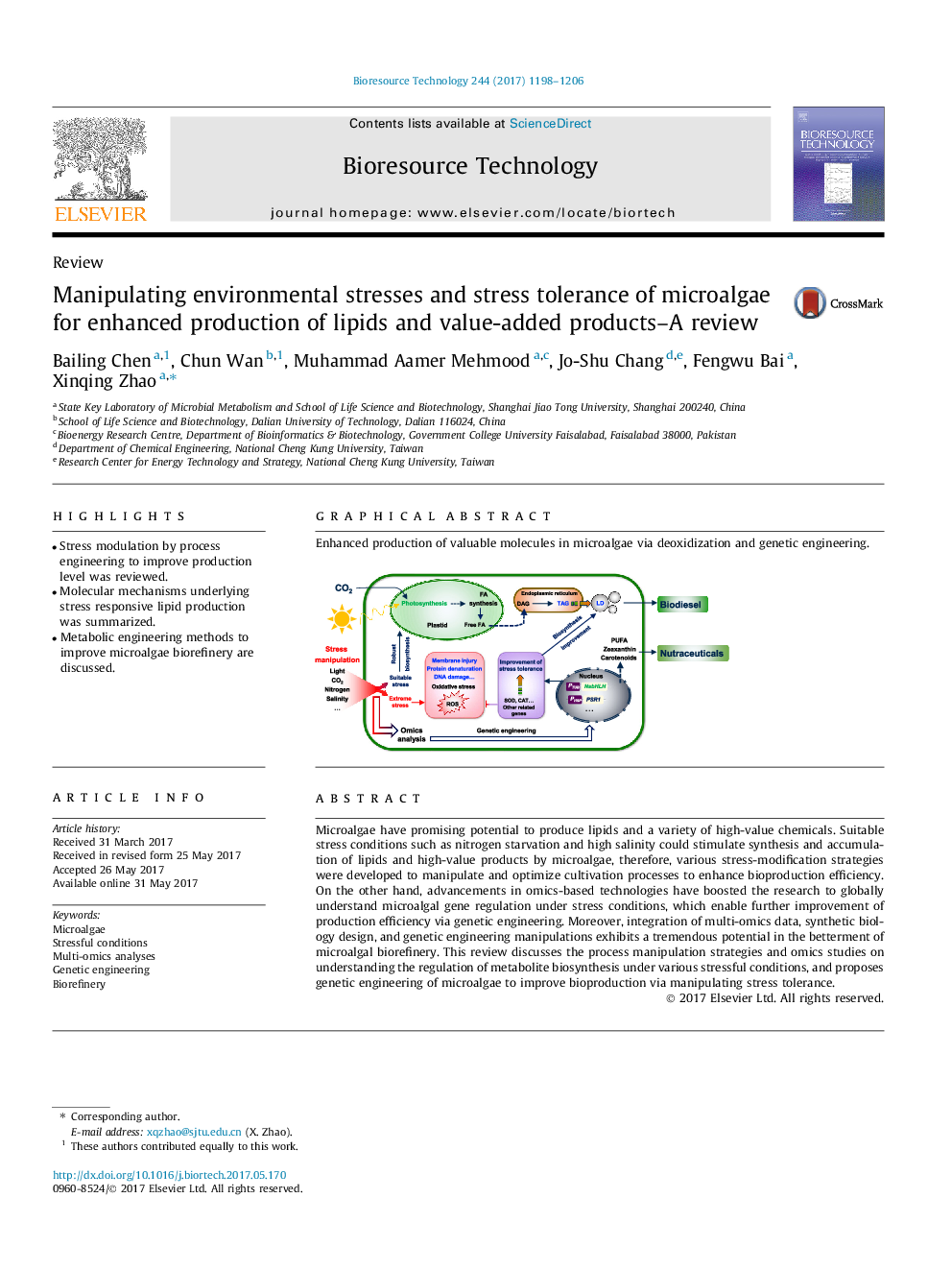| Article ID | Journal | Published Year | Pages | File Type |
|---|---|---|---|---|
| 4996958 | Bioresource Technology | 2017 | 9 Pages |
â¢Stress modulation by process engineering to improve production level was reviewed.â¢Molecular mechanisms underlying stress responsive lipid production was summarized.â¢Metabolic engineering methods to improve microalgae biorefinery are discussed.
Microalgae have promising potential to produce lipids and a variety of high-value chemicals. Suitable stress conditions such as nitrogen starvation and high salinity could stimulate synthesis and accumulation of lipids and high-value products by microalgae, therefore, various stress-modification strategies were developed to manipulate and optimize cultivation processes to enhance bioproduction efficiency. On the other hand, advancements in omics-based technologies have boosted the research to globally understand microalgal gene regulation under stress conditions, which enable further improvement of production efficiency via genetic engineering. Moreover, integration of multi-omics data, synthetic biology design, and genetic engineering manipulations exhibits a tremendous potential in the betterment of microalgal biorefinery. This review discusses the process manipulation strategies and omics studies on understanding the regulation of metabolite biosynthesis under various stressful conditions, and proposes genetic engineering of microalgae to improve bioproduction via manipulating stress tolerance.
Graphical abstractEnhanced production of valuable molecules in microalgae via deoxidization and genetic engineering.Download high-res image (228KB)Download full-size image
